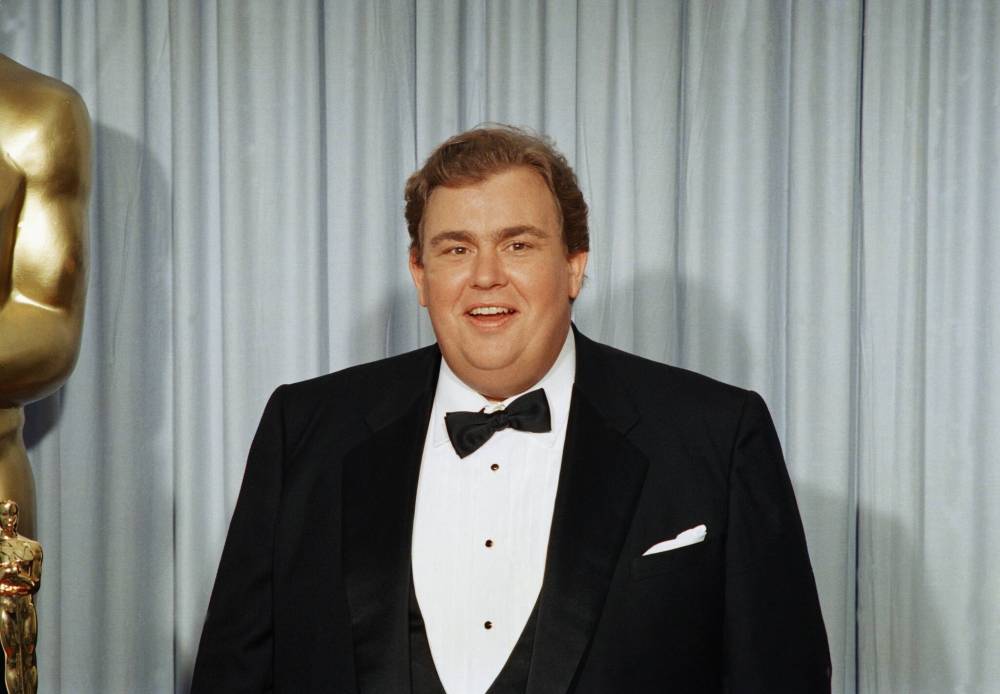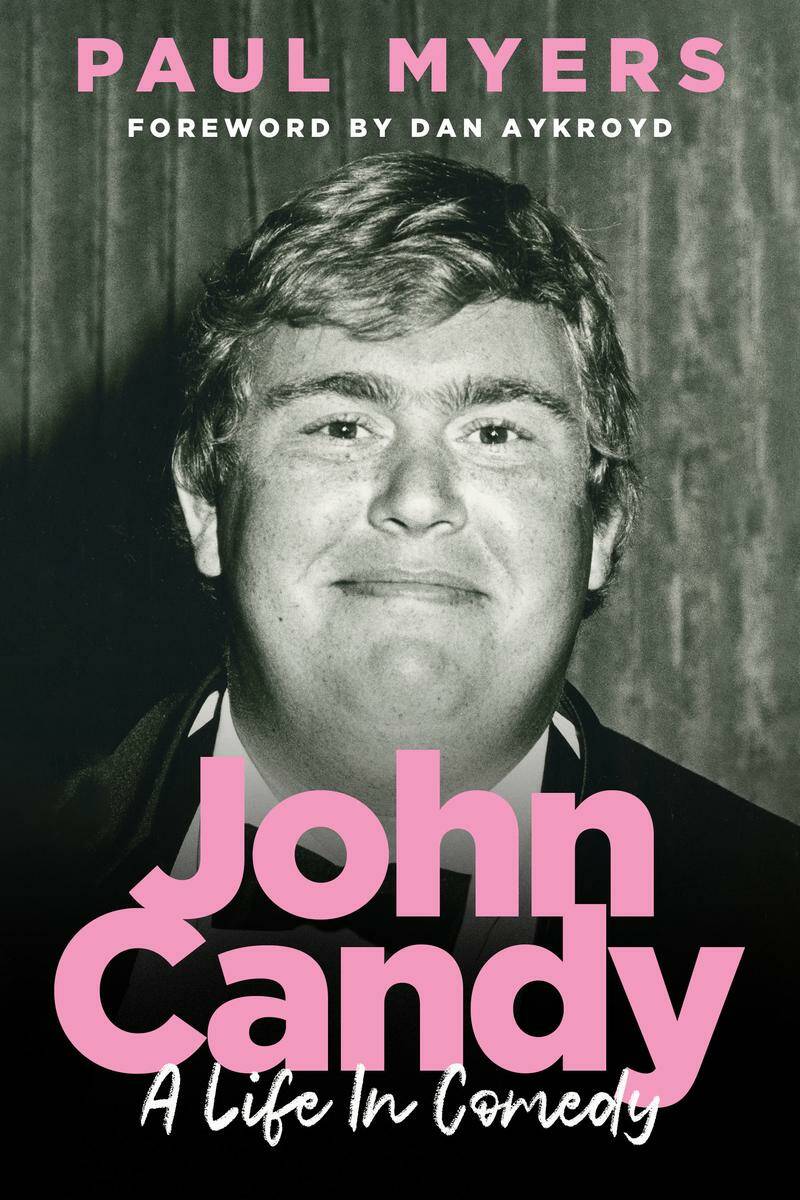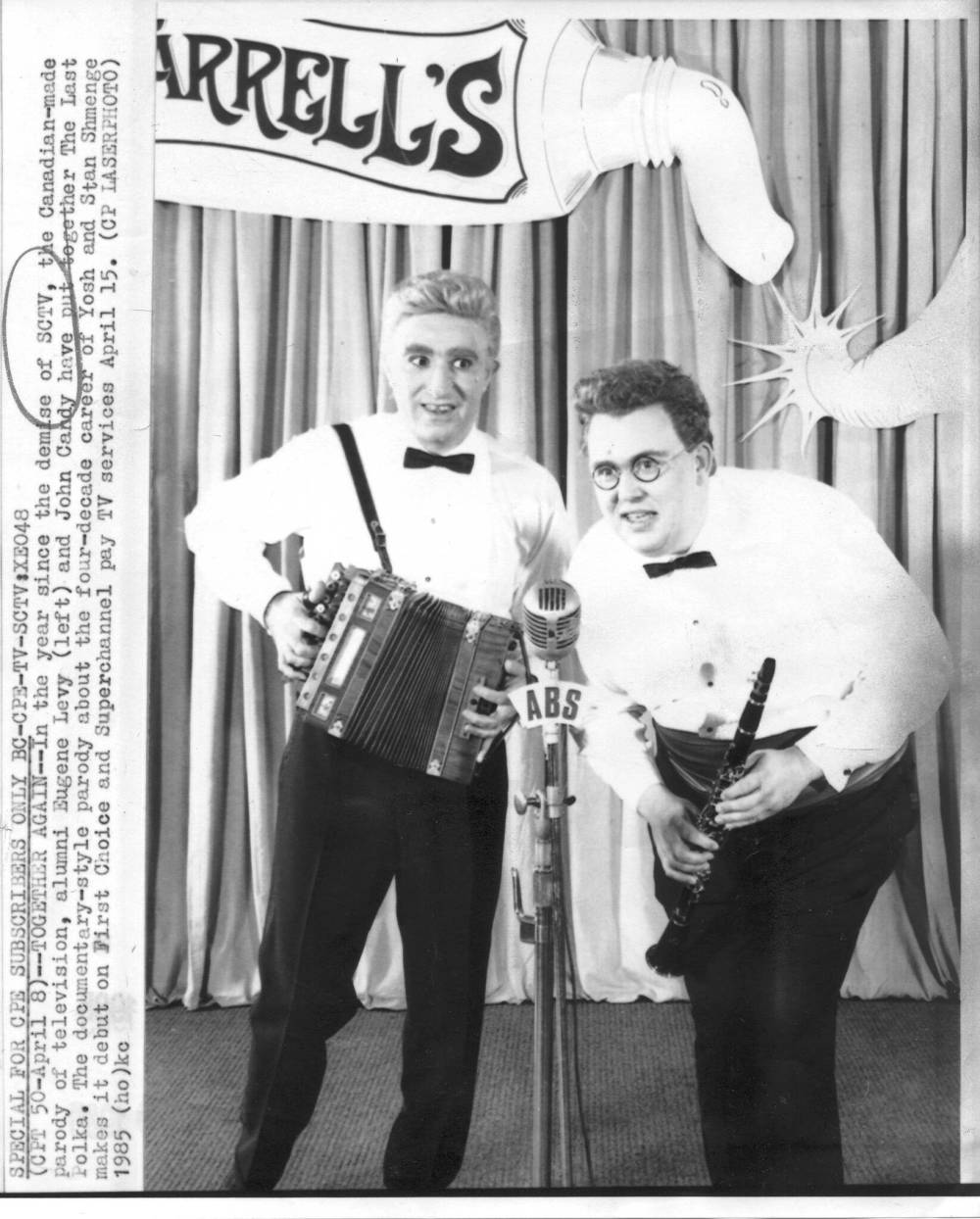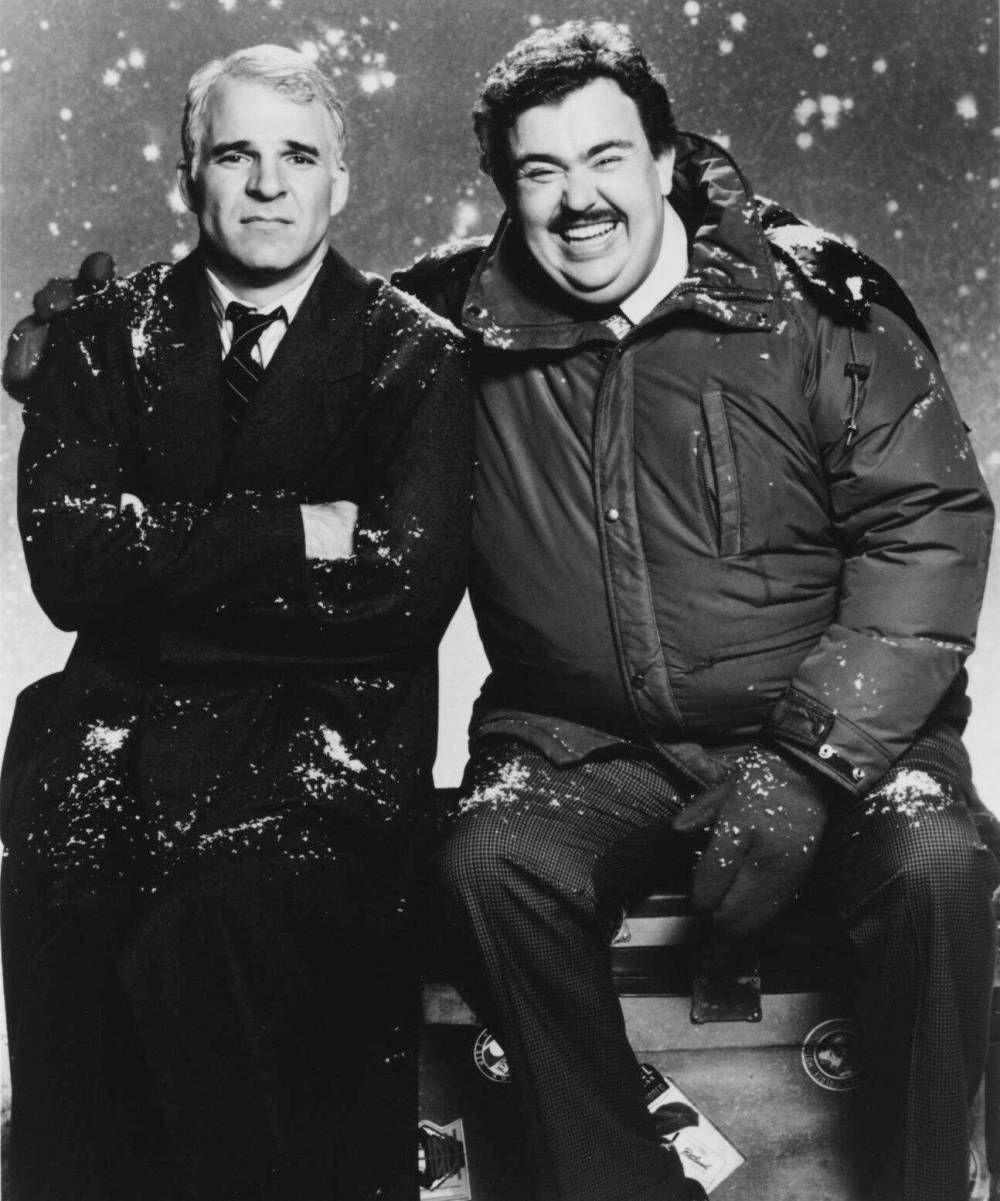Sweet as Candy
Biography of beloved, complicated comedic icon ensures legacy lives on
Advertisement
Read this article for free:
or
Already have an account? Log in here »
To continue reading, please subscribe:
Monthly Digital Subscription
$1 per week for 24 weeks*
- Enjoy unlimited reading on winnipegfreepress.com
- Read the E-Edition, our digital replica newspaper
- Access News Break, our award-winning app
- Play interactive puzzles
*Billed as $4.00 plus GST every four weeks. After 24 weeks, price increases to the regular rate of $19.00 plus GST every four weeks. Offer available to new and qualified returning subscribers only. Cancel any time.
Monthly Digital Subscription
$4.75/week*
- Enjoy unlimited reading on winnipegfreepress.com
- Read the E-Edition, our digital replica newspaper
- Access News Break, our award-winning app
- Play interactive puzzles
*Billed as $19 plus GST every four weeks. Cancel any time.
To continue reading, please subscribe:
Add Free Press access to your Brandon Sun subscription for only an additional
$1 for the first 4 weeks*
*Your next subscription payment will increase by $1.00 and you will be charged $16.99 plus GST for four weeks. After four weeks, your payment will increase to $23.99 plus GST every four weeks.
Read unlimited articles for free today:
or
Already have an account? Log in here »
John Candy would be — should be — celebrating his 75th birthday this Halloween.
When the Canadian comic actor, best known and beloved for his work on the sketch comedy series SCTV as well as in movies such as Planes, Trains and Automobiles, Uncle Buck, Splash, Home Alone, Cool Runnings and so many more, died on March 4, 1994 at the too-young age of 43, it was nothing short of a tragedy.
Here was a man who brought so much joy to people, an open-faced, preternaturally youthful guy as sweet as his surname who had an enormous heart that eventually gave out on him in Durango, Mexico while filming Wagons East.

Canadian Press files
Fellow comics as well as co-stars and directors interviewed by Paul Myers remembered John Candy for his sense of humour, his kindness and his generosity.
Paul Myers’ new biography, John Candy: A Life in Comedy, is a warm, thoughtful, sensitive portrait of a complicated comedian by a writer who clearly has great admiration and affection for his subject matter.
While Myers’ research is exhaustive, what animates this biography are the exclusive interviews with a murderer’s row of comedic greats from Candy’s era (including Dan Aykroyd, Catherine O’Hara, James Belushi, Steve Martin and Martin Short) as well as Tom Hanks, Chris Columbus, Ron Howard and a host of other actors and directors who worked with Candy.
Not surprisingly, Candy is almost universally remembered for his sense of humour, yes, but also kindness and generosity — on stage as an actor and comedian and offstage as a person who wanted everyone in his orbit to live as large as he did. Candy knew how to have fun; there’s not much that wasn’t improved by his presence, whether it was a movie set or a football game featuring his beloved Toronto Argonauts, which he co-owned for a spell in the 1990s, including the year they took home the 1991 Grey Cup from the game held here in Winnipeg.
(Football could have been a possible career path for Candy, as it happens, but a knee injury in high school effectively kneecapped that dream.)
But Myers (the older brother of actor and comedian Mike Myers) also paints a portrait of a deeply sensitive man who was, quite often, privately suffering through the voices of those who knew — really knew — and loved him best.
Candy could be insecure. He was a chronic people pleaser who struggled with anxiety, panic attacks and, despite his singular talent, self doubt. He took professional failures personally.

John Candy: A Life in Comedy
A long, dark shadow was also cast over him: his dad died at 35 from complications from heart disease when Candy was just five years old; for much of his life, Candy’s own heart felt like a ticking time bomb in his chest.
And then there’s the matter of his weight, a lifelong struggle handled respectfully in the book. Candy was extremely self-conscious about his size and famously did not abide fat jokes. He loved food and drink and cigarettes — indulgences he couldn’t escape, despite many, many valiant attempts to do so. The endless loop of diets and trainers is shared in exhausting and heartbreaking detail.
If only Candy could have seen himself the way others saw — and continue to see — him.
But Candy was, above all, a man who showed up. There are so many examples where, despite crippling panic attacks, he just got on with it, whether it was for a scene or for his family — his comedy family, yes, and also his wife Rosemary and children Jennifer and Christopher.
Though he was very much a family man, Candy’s life is mostly examined in Myers’ biography through the lens of his work, from his start at Toronto’s Second City and SCTV through his Hollywood movie career — a roller-coaster ride through all the hits and the misses, the highs and the lows. Ardent fans might not necessarily learn anything new when it comes to the facts of Candy’s life, but taken together, it makes for a propulsive read, each chapter ending on a cliffhanger, even though the reader already knows the devastating ending it’s building up to. Myers knows how to tell an anecdote and uses spare, journalistic prose that can be quite poignant without ever being purple.

Canadian Press files
In this 1985 photo, SCTV co-stars Candy (right) and Eugene Levy and appear as Leutonian musical siblings Yosh and Stan Shmenge.
Occasionally, the biography can be repetitive, since most of the included quotes are variations on a theme. But that also goes to show how beloved he was.
It’s the final chapters dealing with Candy’s death and legacy that are the most affecting. O’Hara shares a dream she had about him, just a couple of years ago, in which she and Candy are doing bits and she mentions something about him being dead. “Aww, you had to say it out loud,” he responds.
Still so himself, even in someone else’s subconscious.
But it’s Aykroyd’s extraordinary eulogy, delivered at Candy’s U.S. funeral (he had a Canadian one too) and printed here in full, that might be the book’s most moving pièce de résistance.
“This is no meagre life we reflect on today. This is as full a life as any human can live. Joy, emotional abundance of spirit, infectious rage, a tinge of Lugosi-like madness, with his bottom reverse vampire teeth and all,” Aykroyd wrote in part. “A titan of a gentle, golden man.”

Handout
Steve Martin (left) and Candy in a promotional still for 1987’s Planes, Trains and Automobiles.
If you loved John Candy — and, really, who didn’t? — this one’s for you.
Jen Zoratti is a Free Press columnist.

Jen Zoratti is a columnist and feature writer working in the Arts & Life department, as well as the author of the weekly newsletter NEXT. A National Newspaper Award finalist for arts and entertainment writing, Jen is a graduate of the Creative Communications program at RRC Polytech and was a music writer before joining the Free Press in 2013. Read more about Jen.
Every piece of reporting Jen produces is reviewed by an editing team before it is posted online or published in print – part of the Free Press‘s tradition, since 1872, of producing reliable independent journalism. Read more about Free Press’s history and mandate, and learn how our newsroom operates.
Our newsroom depends on a growing audience of readers to power our journalism. If you are not a paid reader, please consider becoming a subscriber.
Our newsroom depends on its audience of readers to power our journalism. Thank you for your support.

